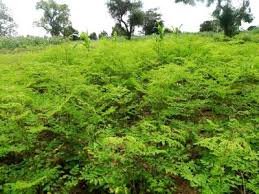Some 20 rural women who have received training in planting and cultivating Moringa, were given training certificates on Monday by Bir Salah training centre of El Hancha delegation (Sfax governorate).
This training is organised at the initiative of the Centre d’orientation et de reconversion professionnelle (CORP) of the Tunisian-German Chamber of Industry and Commerce (AHK Tunisia).
It aimed to match the qualifications of job seekers to the real needs of each region and companies, said COPR Director Youssef Fennira.
Director of the Bir Salah training centre, Sarra Toumi, indicated that the choice of this training for rural women was inspired by the characteristics of this plant whose cultivation does not require large quantities of water.
THE MORINGA, A FOOD AND MEDICINAL TREE
The Moringa is a tropical tree native to India. It is often located close to homes in Asia and Africa because it provides many services. Moringa is above all a medicinal plant. All parts of the tree, from roots to flowers, are used in Ayurvedic medicine and by many other traditional medicines.
The moringa is also a food tree
Fruits and their leaves are commonly used in local recipes. In India, fruit is the most popular: these large green pods are eaten in curries. Moringa is cultivated by most small farmers in southern India and Sri Lanka. In Africa, Madagascar and Reunion Island, it is the leaves that are consumed, cooked in sauce. Until recently, moringa was considered a poor man’s dish, and the leaves were a picker.
TunisianMonitorOnline




